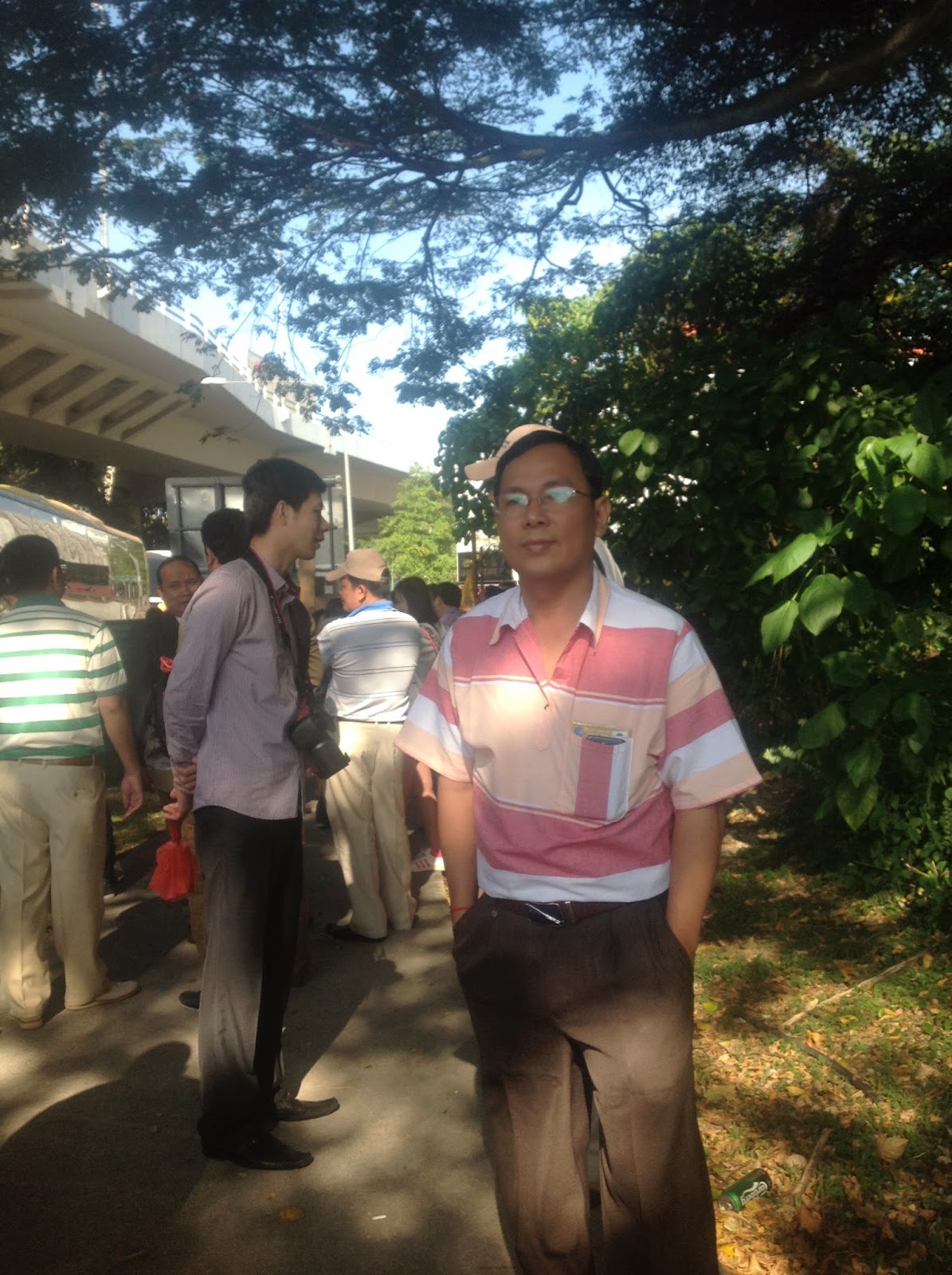Day 2: February 1, 2014
In the early morning all the BELTEI Team Leaders had breakfast at Johr-Bahru restaurant before continuing to trip the other places. When I woke up around 6:15am, My Buth Dimang and I went down the ground-floor to wait for my colleagues in order to have breakfast together.
Normally, Mr. Buth Dimang and I got up early and we went down to the ground floor to wait for our colleagues.
We were sitting on the sofa around 15 minutes, I saw Mr. Morn Samear and his wife arrived the breakfast hall so that we walked around the long desks which was kept many kind of foods. We chose some of the favorite meals for us, then we moved to the place to sit together.
I was curious because I really wanted to know about Singapore; hence, I decided to ask one of a girls who are serving that restaurant. I use English to communicate with her. I spent 10 minutes to dialogue with her. One word that made me strange was he is a Korean girl. She is a graduated student with the fields of accounting. She said she come to Singapore to work for earning experiences because that country has a lot of tourists. She would like to meet many people that were coming from different countries. Therefore, she could get experiences from them.
The conversation finished, I moved to sit one of the tables that my friend were having breakfast. We discuss about the society in Singapore and we also compared to our country, Cambodia. Suddenly, there was a man looks like Indian. I started the questions again because I think that he is a tourist as well. When we started the conversation, he introduced himself. He is a Pakistan person.
He was working for that hotel, too. He added that most of the people working here aren't Singaporean because the Singapore citizen need high salary. Talking to this point, I was thinking about ASIAN Integration in the near future (the year 2015). I am worrying about the knowledge (skillful) that Cambodian students graduated every year, and most of them don't have enough experiences to enter the globalization. They will lost their jobs because some of them don't care about their learning, and they don't like reading to gain knowledge, too.
In the early morning all the BELTEI Team Leaders had breakfast at Johr-Bahru restaurant before continuing to trip the other places. When I woke up around 6:15am, My Buth Dimang and I went down the ground-floor to wait for my colleagues in order to have breakfast together.
Normally, Mr. Buth Dimang and I got up early and we went down to the ground floor to wait for our colleagues.
We were sitting on the sofa around 15 minutes, I saw Mr. Morn Samear and his wife arrived the breakfast hall so that we walked around the long desks which was kept many kind of foods. We chose some of the favorite meals for us, then we moved to the place to sit together.
I was curious because I really wanted to know about Singapore; hence, I decided to ask one of a girls who are serving that restaurant. I use English to communicate with her. I spent 10 minutes to dialogue with her. One word that made me strange was he is a Korean girl. She is a graduated student with the fields of accounting. She said she come to Singapore to work for earning experiences because that country has a lot of tourists. She would like to meet many people that were coming from different countries. Therefore, she could get experiences from them.
The conversation finished, I moved to sit one of the tables that my friend were having breakfast. We discuss about the society in Singapore and we also compared to our country, Cambodia. Suddenly, there was a man looks like Indian. I started the questions again because I think that he is a tourist as well. When we started the conversation, he introduced himself. He is a Pakistan person.
He was working for that hotel, too. He added that most of the people working here aren't Singaporean because the Singapore citizen need high salary. Talking to this point, I was thinking about ASIAN Integration in the near future (the year 2015). I am worrying about the knowledge (skillful) that Cambodian students graduated every year, and most of them don't have enough experiences to enter the globalization. They will lost their jobs because some of them don't care about their learning, and they don't like reading to gain knowledge, too.


